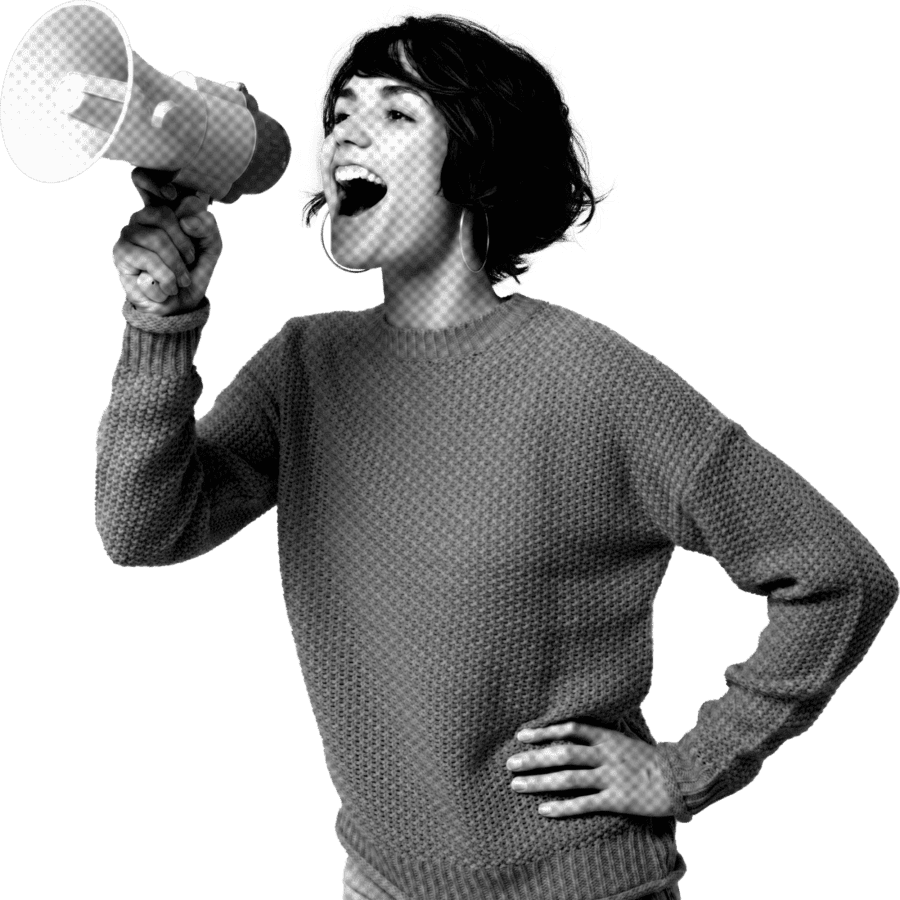My name is Lydia Wilkins, and I’m a disabled individual. I have been all my life. And if there was ever something to make me wince, it’s the prospect of travel. The usual semantics would follow – “why can’t you just be normal?”, “don’t be anxious!”, “can’t you just try harder?” The lack of care offered by most organisations to its disabled clientele added salt to a bitter wound, simply as it seemed to suggest I was a problem, and not welcome.
Travel and disability have been in the press a lot lately. There have been too many outrageous stories of disabled people and their humiliation when travelling. Rights On Flights has been utterly brilliant in turning that on its head. However, the reception of these efforts seems to be only on wheelchair users. Even though it’s a must to make sure wheelchair users can travel safely and without major issues, which you can learn more about in this blog post from Joe Logue, only 8% of the disabled community are actually wheelchair users. Neurodivergent individuals, for example, rarely, if ever, are given ‘air time’ when it comes to accessible travel.
Even though there is a lot of work that needs to be done in this industry, having inclusive and accessible marketing and comms activities can help make this whole process a lot easier for Neurodivergent travellers. This includes social media content, information on the brand’s website, customer service, newsletter, etc. In this blog post I will give you a simple guide to help you improve your marketing for all your Neurodivergent customers.

The Role of Marketing in Accessible Travel
I have often felt that marketing is key when it comes to dismantling inaccessible barriers around travel. When flying to the United States two years ago, it was the lack of clear marketing that made my flight significantly far more stressful than needed; when travelling to the Netherlands recently, the lack of marketing materials or even training around disability was as evident as it was upsetting. If that is taken as standard, why would anyone want to partake in such an activity?
Marketing significantly impacts the travel experiences of disabled individuals, particularly Neurodivergent travellers. Inclusive marketing that highlights accessible destinations, sensory-friendly environments, and tailored services can make us feel more confident towards our journey ahead. It ensures that travel companies cater to diverse needs, from quiet spaces to clear communication. Marketing plays a crucial role in transforming the travel industry into a more welcoming and accommodating space for everyone. Therefore, having a team fully trained around all things inclusion and disability, and making sure all your marketing activities have the disabled community in mind, is essential to improve your reach, your brand loyalty, and making your customers’ journeys a lot less stressful.
Specific Challenges for Neurodivergent Travellers
Neurodivergent travellers face unique challenges while travelling, and even though every individual is different and will have different needs, these are some of the common ones that airlines and travel brands should pay attention to:
- Sensory-friendly spaces: Busy airports, loud noises, and crowded spaces can be overwhelming for some Neurodivergent travellers, having a safe and quite space where they can relax before their flight is essential.
- Minimal changes: Changes can happen, especially when travelling, but these can increase people’s anxiety and stress, try to avoid changes or inform your customers as soon as possible.
- Clear communication: Following the previous point, ambiguous instructions or sudden changes can be particularly difficult, make sure you provide clear instructions and be open to clarify things further if needed.
The best way to cater to your Neurodivergent and Disabled customers is by working with the community, to truly understand what they need from you. An easy way to achieve this is by collaborating with consultants and experts like the team at Purple Goat!
What Travel Brand Marketing Teams Can Do to Improve the Experiences of Neurodivergent Customers
Marketers in the travel industry are key for ensuring Neurodivergent travellers have an accessible experience; this is a whistle stop guide with some thoughts on how to improve the industry.
1. Be aware of the rights of all passengers
Disabled individuals make up the world’s largest minority group. This group, according to the Government’s last consensus, is almost a quarter of the UK’s population. The UK legal definition includes Neurodivergent individuals – such as Autistic people – when it comes to having to make reasonable adjustments.
In 2024, it’s good business sense for marketing professionals to be aware of disability. DEI inclusion also means organisations can optimise the Purple Pound (the spending power of disabled customers and their families), a large economic metric worth £274 billion in the UK, that is lost every year across businesses due to lack of accessibility. Having accurate information in your marketing content is a *must* that benefits every single one of us.
There are hidden, physical and dynamic disabilities – but we do a disservice to all if we fail to look at this with nuance. Provisions by the Equality Act mean Neurodivergence is also recognised; we just yet to have that conversation.
2. Train your team to be confident around disability
If a marketing team goes through a DEI training, this would not only show that the company cares for all their customers, but it would also help avoid backlash and difficult situations when disabled travellers face any challenges.
As an example, one of the worst experiences I had travelling was due to language, and the staff not knowing how to properly communicate with me. The assistance booked had me cast as ‘brain dead’; on turning up, there was confrontational aggression when asking for help: “We don’t help people like you.” As a Neurodivergent individual, my disabilities are hidden – they may not be obvious, but I am still entitled to help. This exchange was carried out despite there being a 2 metre sign not that far behind me, with a big arrow, directing where to go for help. Later, I was given a manual wheelchair to be pushed to the plane in; this is despite me not using one. The language used around my refusal implied I was a petulant child, that this would somehow make me ‘easier’ to deal with. No one told the crew of the plane I was coming, and allowed to board early; the wheelchair was pushed to the front of the queue, with me walking behind, in front of a whole plane. The initial reaction was that I was barging in front of everyone on board. I sobbed myself to sleep at my hotel.
If kindness had been the basic starting point, and the airline was disability-confident, that would have meant a far better experience.
Any kind of marketing material needs to be informed by disabled people, such as through lived experience consultancy. It is equitable, improves access, and means we’re likely to come back – whereas research is showing that more and more of us are actually staying at home, and not travelling, due to systematic barriers.
3. Check the accessibility of your online presence
If knowledge is power, then that power also needs to be accessible to every single one of us. The internet is a vast resource; most organisations have some kind of digital marketing presence, such as with a website and social media pages. That needs to be accessible to all potential customers, including disabled individuals.
Any website can improve its accessibility by taking into account simple things like, adding alt text to images, having a good colour contrast and accessible fonts, having simple and clear graphics, and making sure all videos have captions. This would not only make your disabled customers know that you care about them, but it will also make your content reach a wider audience, and have a better SEO!
Having easy to read instructions, or a social story available, is also something that should be made easily available – such as by not having this buried deep in a website, with hours spent trying to locate it. Position this so it is upfront rather than us having to search for hours and hours. If you make the whole process easier for us, it is more likely that we will want to come back.
Access to the web is a problem that needs to be addressed, and basic steps can be taken. The team at Purple Goat recently talked about this in a podcast episode with a website accessibility expert, you can check it out below.
4. Be affirmative but fair on communications
Sometimes things go wrong. That is just life. But the way in which we communicate around potential mistakes is absolutely key when it comes to marketing.
Communication can be a barrier to disabled individuals, especially when executed poorly; if you’re unsure as to how to do this well, people with lived experiences of disability and experts like Purple Goat, can help you with that.
As a disabled individual, I should be communicated with without caveat, and in an age appropriate manner, just like you would do with any other customer. I may be disabled, but I am also an adult; the assumption is that, whenever I travel, anyone I am with is the person making all of my decisions I have autonomy over. It is infantilising and undignified. But it happens too often, and it has almost always come from individuals working in the marketing teams of different organisations I have come into contact with. The poor communication is a barrier for me when travelling; and I’m sure other Neurodivergent individuals have had similar experiences. It has left me in tears previously, and has even meant I haven’t returned to some places.
Concluding thoughts
There are many barriers when it comes to disabled travellers, including the Neurodivergent community; the discussion of inclusion has only just begun, and there is so much work to do. Be it the accessibility of communication to any presence online, it is something that benefits every single one of us – as well as being an asset to any business. To be disability confident means to be equitable for the twenty first century; who wouldn’t want that?
If you want to learn more about how you can make your marketing and comms activities more inclusive and accessible to the Neurodivergent community, reach out to the team at Purple Goat!




